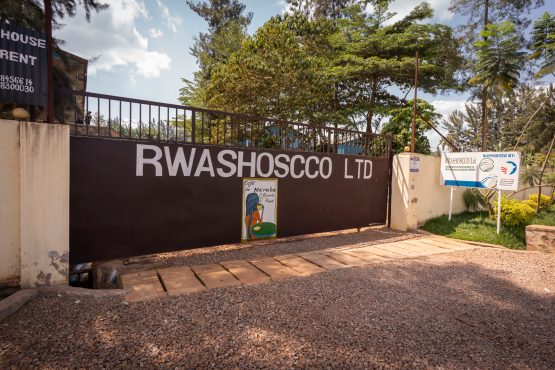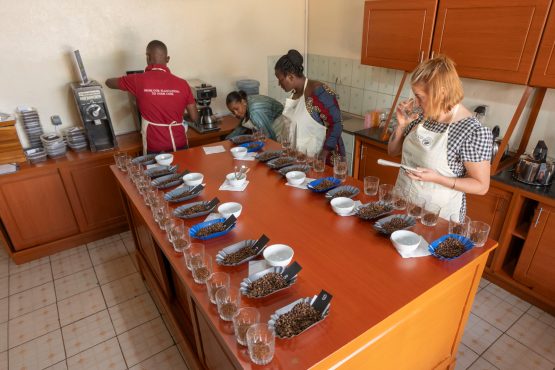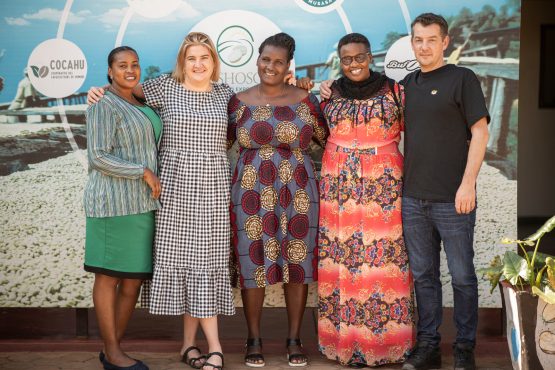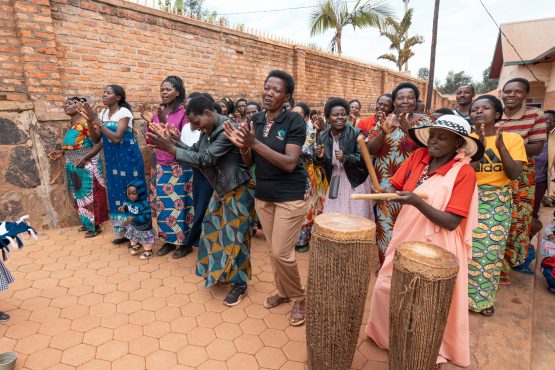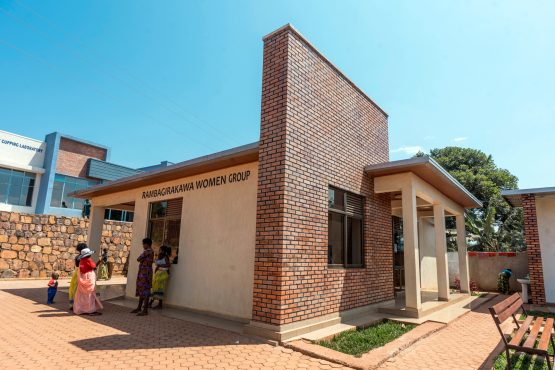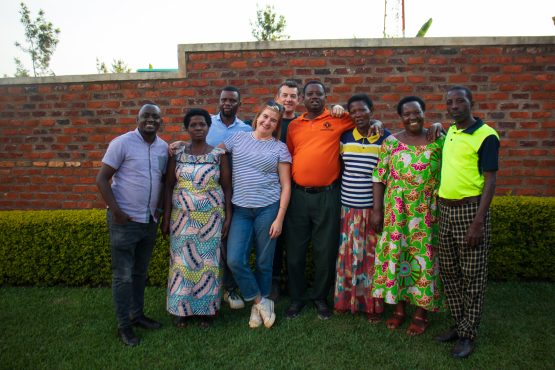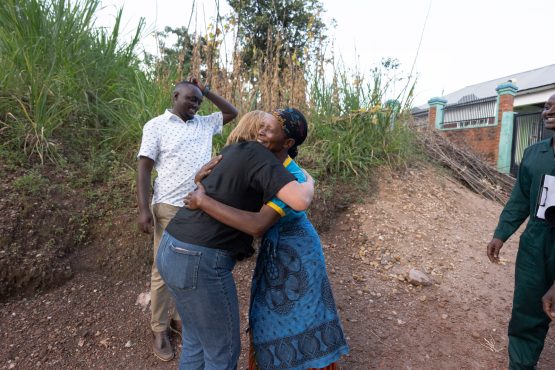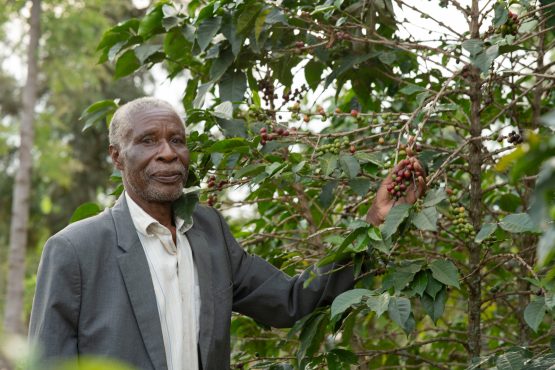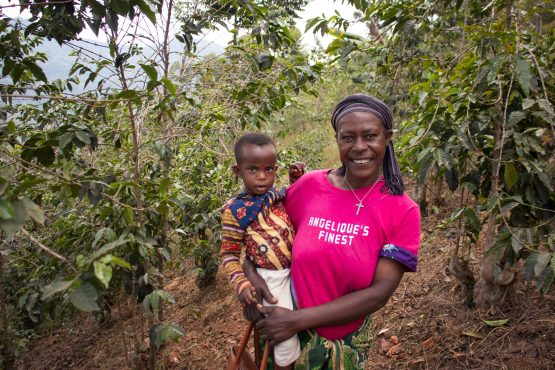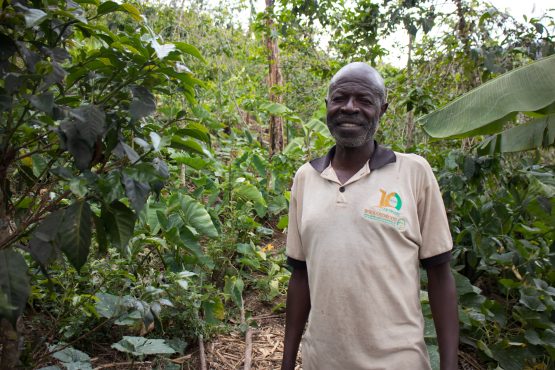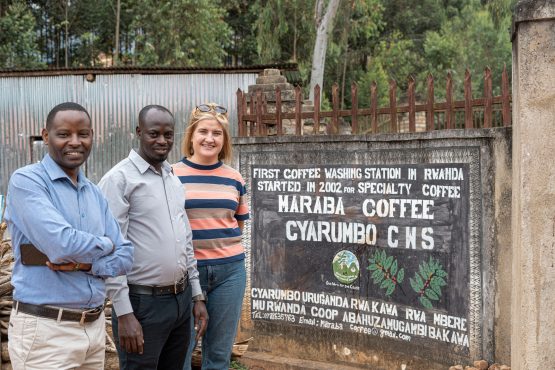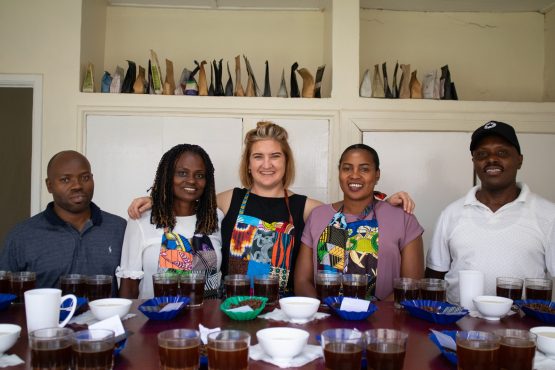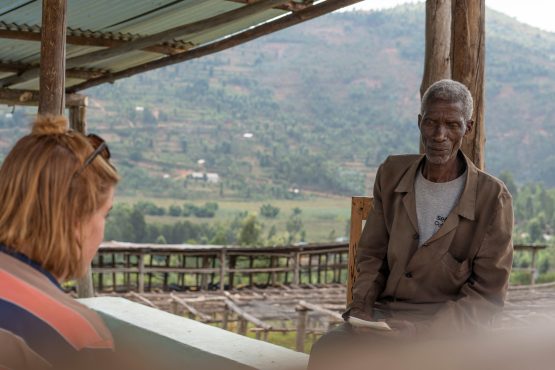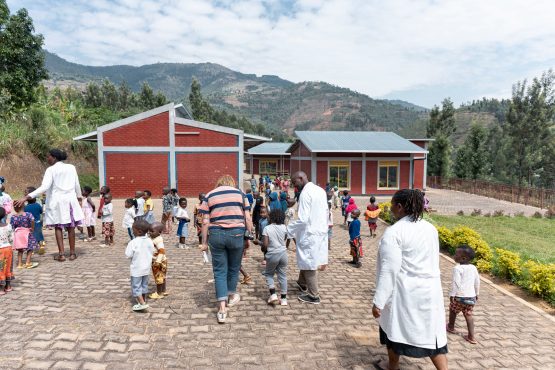Updates From The Road: Rwanda 2023
Published 8 Aug 2023
After a hugely successful and rewarding trip to Rwanda in June, we’re sharing insights and stories from what we learned on the road, along with more on what to expect from this year’s crop.
After four long years away, we were so excited to be visiting Rwanda again! We love showcasing the outstanding coffees we source here while celebrating the individuals and communities that produce them. Our 2023 sourcing trip began in the country’s capital, Kigali, a bustling city that has experienced significant growth and development since we were last there in 2019. Driving around the city, we spotted many new coffee shops and restaurants offering locally sourced, specialty-grade coffees to Rwandans and tourists alike. The city’s thriving café culture is great news for farmers selling their crop into the domestic market, who can make a higher premium and access a wider audience through specialty-focused venues.
In the city, we spent most of our time with our longtime supply partner, RWASHOSCCO, a cooperative-owned exporter who work alongside Dukunde Kawa and Maraba Cooperatives to manage the logistics and export of their lots. Each year, their team of expert cuppers, headed up by Eugenie Mukandanga, curate a range of the season’s coffees for us to taste and select from, including day lots from each of the cooperatives’ washing stations and single producer lots.
While cupping, the team shared that this year’s weather has created challenges for farmers and washing station operators alike, for the second year in a row. Late rainfall at the end of 2022 led to lower than hoped-for yields, directly impacting how much growers earn from their crop and leading to increased competition for cherry in the local market. Rwanda’s National Agricultural Export Development Board (NAEB) held minimum cherry prices at the same rate as last year (which was 65% higher than in 2021!), contributing to another year of increased prices across the board. On a positive note, lower production usually results in higher quality overall, as farmers tend to pick more selectively to increase the premiums they can earn for high quality cherry — something we’re excited to showcase with the 2023 line up!
While in Kigali, we also connected with our dear friend, Sam Muhirwa, who acts as the Managing Director of Buf Coffee. Sam is one of our favourite people in coffee and it was a delight to spend time together again. Cupping at Buf’s HQ in Kigali, we tasted coffees from each of their washing stations and chatted extensively with Sam to learn more on how the coffee industry has progressed. Recently, NAEB has reversed zoning laws that were initially established in 2017. These laws required coffee farmers within specific geographic zones to sell their crop exclusively to washing stations found in those same zones, and prohibited sales or purchases outside of them. While these laws had the potential to strengthen the relationship between farmers and washing station operators, once in place they minimised the autonomy of coffee growers to sell where the price is highest, and required some coffee washing stations to purchase more cherry than they could process with best practices. Like many within the industry, Sam is optimistic about the flexibility and opportunity that the reversal of these laws will bring.
After a few nights in town (and once we’d recovered from the jetlag!), we hit the road, heading north to visit the always-impressive Dukunde Kawa cooperative. The landscape of the Northern Province is breathtaking, with rolling hills and bright red soil covered with lush, green vegetation. Arriving at Ruli Washing Station (Dukunde Kawa’s HQ), we were greeted by beautiful song and dance. The amount of progress since our last visit in 2019 is astounding, with Dukunde Kawa opening a new café, a roastery (which supplies coffee contributed by cooperative members to several hotels, restaurants and cafes in the country) and a state-of-the-art cupping lab. Additionally, they have expanded their coffee school and model farm, where children of cooperative members are taught everything from how to build a nursery and successfully propagate coffee trees, to the best picking and sorting techniques to ensure profits from their crop are maximised.
At Ruli, we spent meaningful time with the women of the Rambagira Kawa cooperative, a smaller, female-led cooperative within Dukunde Kawa, at their community and craft house (funded through the incredible generosity of our roasting community and constructed in 2019). Here, the group’s founder and president, Odette Murekatete, gave an extremely warm welcome, before sharing how the group has become more financially secure since we were last there. We met many members of the cooperative who supplement their income from coffee by weaving and selling beautiful baskets and handicrafts. In addition to this enterprise, the women have recently invested in a plot of land where they collectively farm coffee. Anticipating that the demand for their ‘women’s group’ coffees will continue to grow, the women have taken the proactive step to increase production and share the profits amongst their members. It’s this forward-thinking approach that makes Rambagira Kawa so impressive, and it’s hugely motivating for us in continuing to grow the market for their coffees and share their inspiring story!
While in the Northern Province, we were privileged to visit several cooperative members who own enough coffee trees be able to process and sell their crop as a separate lot (as opposed to most coffee growers, whose crop is too small to export individually). It was a wonderful experience to visit the homes of producers like Andre Hakizimana, Anastase Minani and Marie Bedabasingwa — names many of you will be familiar with already. Our visit with Marie was particularly heartfelt, as she shared how she rebuilt her life after losing her husband and son during the Genocide, all the while raising four other children and a granddaughter. We were deeply moved by Marie’s willingness to tell her story – a poignant reminder of the resilience and strength of the country’s people.
Following our time with Dukunde Kawa, we headed south to visit the Huye region in Rwanda’s Southern Province. Here, we visited the Maraba Cooperative, who also export their coffee via RWASHOSCCO. Established in 2001, Maraba was one of the country’s first cooperatives to be formed in the wake of the devastating Genocide and has since inspired many other specialty-focused cooperatives and coffee companies. Maraba’s General Manager, Theophile Biziyaremye, extended a warm welcome as we toured both Cyarumbo (the very first specialty-focused washing station constructed in Rwanda) and Sovu washing stations.
Theo explained that building strong relationships with coffee buyers is key to Maraba’s success, and this collaboration has led the cooperative to new projects and programs with their members. In response to market requests, Maraba has facilitated the forming of women’s groups within the cooperative (similar to Rambagira Kawa), and now processes their coffees as separate lots. This program provides significant financial benefits for the women, who earn an additional bonus on top of the standard premium that all members receive for cherry, and incentivises higher quality. The cooperative has also started processing some single farmer lots, including from Philippe Sinayobye, whose coffee we have featured in our line up since 2019.
It was a delight to meet Philippe for the first time at Maraba’s HQ and dry mill, situated nearby to Sovu washing station. At just 35 years old, Philippe represents the future of specialty coffee production in Rwanda. His farm is recognised by the cooperative as having particularly favourable conditions for coffee production, including a good amount of shade, and Philippe’s use of organic fertiliser. By processing his lot separately, Maraba can showcase regional distinction and service their buyers more successfully; for Philippe, the reward is in selling his whole crop, and building a name and market for his coffee internationally.
Buf Coffee’s Sam accompanied us to the south, and we spent most of our time there touring the company’s washing stations in and around his hometown of Nyamagabe. We began at Remera, the largest of Buf’s four sites, and then made our way to Nyarusiza, where we met 81-year-old coffee producer Anastaste Mudaherenwa. With an impressive 5,200 coffee trees, across 15 plots of land, Anastase is one of the largest estate holders in the area and has enough cherry to process sizeable day lots individually. Having inherited his first plot of coffee trees from his parents in his teens, Anastase has over 60 years of accumulated knowledge about coffee growing here. It was particularly compelling to hear him compare today’s production standards to those before centralised washing stations were established in the early 2000s, when cherries were arduously pulped by hand using stones, and growers sold dried parchment to anonymous brokers at very low prices. Today, Anastase can prosper as a coffee farmer, and his children and grandchildren see a future in specialty production.
Our last stop in the south was to Umuvumu Kindergarten, the early-education facility established by Buf coffee in 2018. Built to service the families of coffee growers and washing station workers around Nyarusiza, Umuvumu provides free education to local children aged between three to six years old. Spending time with the kids was, without a doubt, one of the highlights of our time in Rwanda. We loved sitting in on their lessons, hearing them sing and watching them play in the outdoor playground (generously funded by our roasting community back in 2019). We’re so excited to support this incredible initiative by Sam and hope to visit for many more years to come.
We’ll be sharing more stories and insights with our customers and peers, as we prepare for this season’s coffees to land. We’re expecting pre-shipment samples to arrive by mid-October, with the shipment arriving sometime around December 2023. Keep your eye on this space as we continue to send updates and invite you to join in some special fundraising projects we are currently developing – we’d love to have you involved! In the meantime, let us know if you’re keen to feature Rwandan lots in your 2024 line up, or get in touch anytime to learn more about our sourcing program here.

